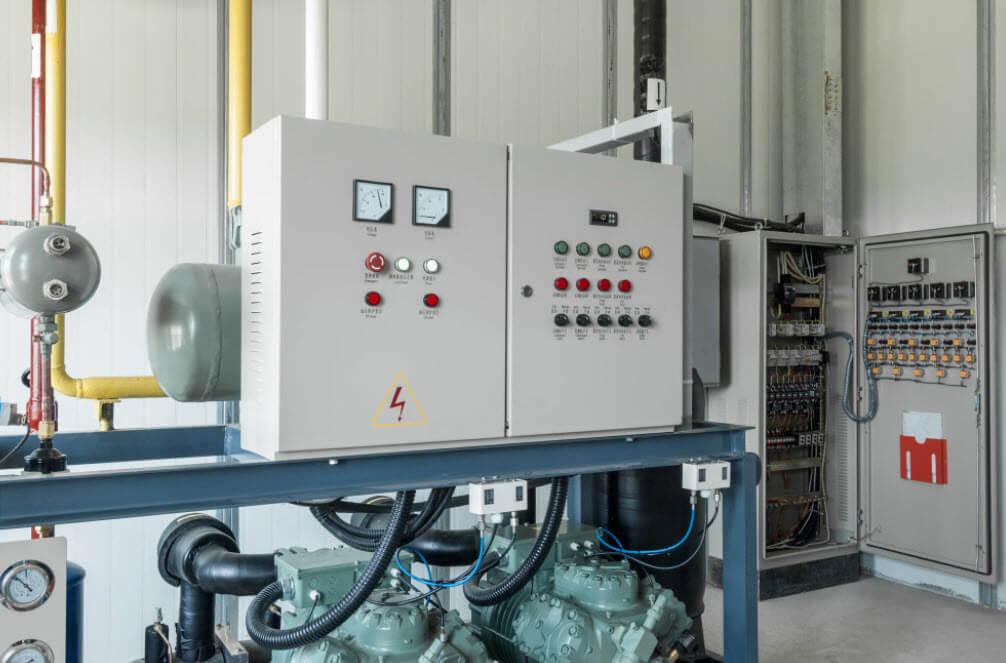An automation panel is the central hub of any modern industrial control system, serving as the command center that houses and connects the essential electrical components required for automation. From programmable logic controllers (PLCs) to circuit breakers, contactors, and human-machine interfaces (HMIs), automation panels make it possible to manage complex processes efficiently, safely, and reliably.
For industries striving to enhance productivity, reduce manual errors, and gain better control over their operations, implementing a well-designed automation panel is a crucial step toward achieving long-term success.
What Is an Automation Panel?
An automation panel is an electrical enclosure that contains the hardware and wiring required to control automated machinery or processes. It acts as the interface between the human operators and the machines, providing centralized control and real-time feedback.
Common components inside an automation panel include:
-
PLCs (Programmable Logic Controllers) – The "brain" of the system, executing logic-based operations.
-
HMIs (Human-Machine Interfaces) – Touchscreen displays or terminals that provide user control and data visualization.
-
Contactors and Relays – Switch devices for controlling electrical power to machinery.
-
Variable Frequency Drives (VFDs) – Manage motor speed and torque based on system demands.
-
Circuit Breakers and Fuses – Protect the system from electrical overloads.
-
Terminal Blocks and Wiring – Ensure secure and organized connections between components.
Key Benefits of an Automation Panel
-
Centralized Control
Automation panels allow operators and engineers to monitor and control various machines and processes from one centralized location. -
Improved Safety
With proper design and UL508A certification, automation panels minimize the risk of electrical faults, arc flashes, and fire hazards. -
Operational Efficiency
Automating repetitive or high-precision tasks reduces downtime and improves throughput across the production line. -
Scalability and Flexibility
Panels can be customized and expanded to accommodate future system upgrades and new technologies. -
Data Collection and Analysis
Automation panels integrated with SCADA or IIoT systems enable real-time data logging and remote monitoring.
Industries That Rely on Automation Panels
Automation panels are used in virtually every industry that depends on process control and automated machinery. Key sectors include:
-
Manufacturing – Assembly lines, material handling, and robotic control.
-
Water & Wastewater – Pump control, treatment plant monitoring, and flow regulation.
-
Food & Beverage – Batch processing, temperature control, and packaging.
-
Oil & Gas – Pipeline automation, refinery control, and hazardous environment monitoring.
-
Pharmaceuticals – Regulatory-compliant process automation and cleanroom operations.
-
Energy & Utilities – Power distribution, smart grid management, and renewable energy systems.
Each of these sectors requires custom automation solutions built to withstand harsh environments and deliver precise, repeatable results.
Key Considerations When Choosing or Designing an Automation Panel
To get the most out of your automation panel, it’s important to consider:
-
Environment – Will the panel be exposed to moisture, heat, dust, or corrosive chemicals? Choose an enclosure with the appropriate NEMA or IP rating.
-
System Complexity – Multi-zone or multi-device systems require more advanced PLCs and networking capabilities.
-
Compliance Requirements – Panels should meet UL508A or UL698A standards, especially for regulated industries or hazardous locations.
-
Integration Needs – Can the panel interface with your existing SCADA, MES, or ERP systems?
-
Ease of Maintenance – Panels should be designed with clear labeling, accessible wiring, and modular components to simplify maintenance.
Why Choose a Custom Automation Panel from a Trusted Integrator?
While pre-built control panels can work for some applications, most facilities benefit from a custom-built automation panel tailored to their exact process requirements. A knowledgeable automation partner will not only design and fabricate the panel but also handle software programming, installation, and ongoing support.
One such trusted provider is X-Automation LLC, a leading name in the design and integration of high-performance automation panels. With decades of experience across industries, their expert engineers create fully customized panels that deliver unmatched performance, safety, and scalability.
X-Automation LLC: Your Partner in Advanced Automation Solutions
At xautomationllc.com, you’ll find:
-
UL508A-certified control panel fabrication
-
Complete system integration with PLC, HMI, and SCADA
-
Industry-specific automation solutions
-
Remote monitoring and IIoT-enabled panels
-
Turnkey services from design and build to installation and support
Whether you're automating a single machine or an entire facility, X-Automation LLC provides the engineering expertise and support you need to succeed.
The Future of Automation Panels
As the industrial landscape embraces Industry 4.0, automation panels are evolving to become smarter, more connected, and more powerful. Features like cloud integration, edge computing, remote diagnostics, and AI-driven control logic are transforming panels from static enclosures into dynamic tools for innovation and decision-making.
Future-ready panels will not only control processes—they will help predict maintenance needs, optimize energy use, and provide insights that drive better business decisions.
Conclusion
An automation panel is more than just a box of wires—it's the heart of your industrial control system. From boosting efficiency and safety to enabling digital transformation, the right panel is a smart investment in your operation's future.
To explore custom automation panels built to your exact specifications, visit xautomationllc.com and partner with a team that understands how to bring precision, reliability, and innovation to every control solution.
